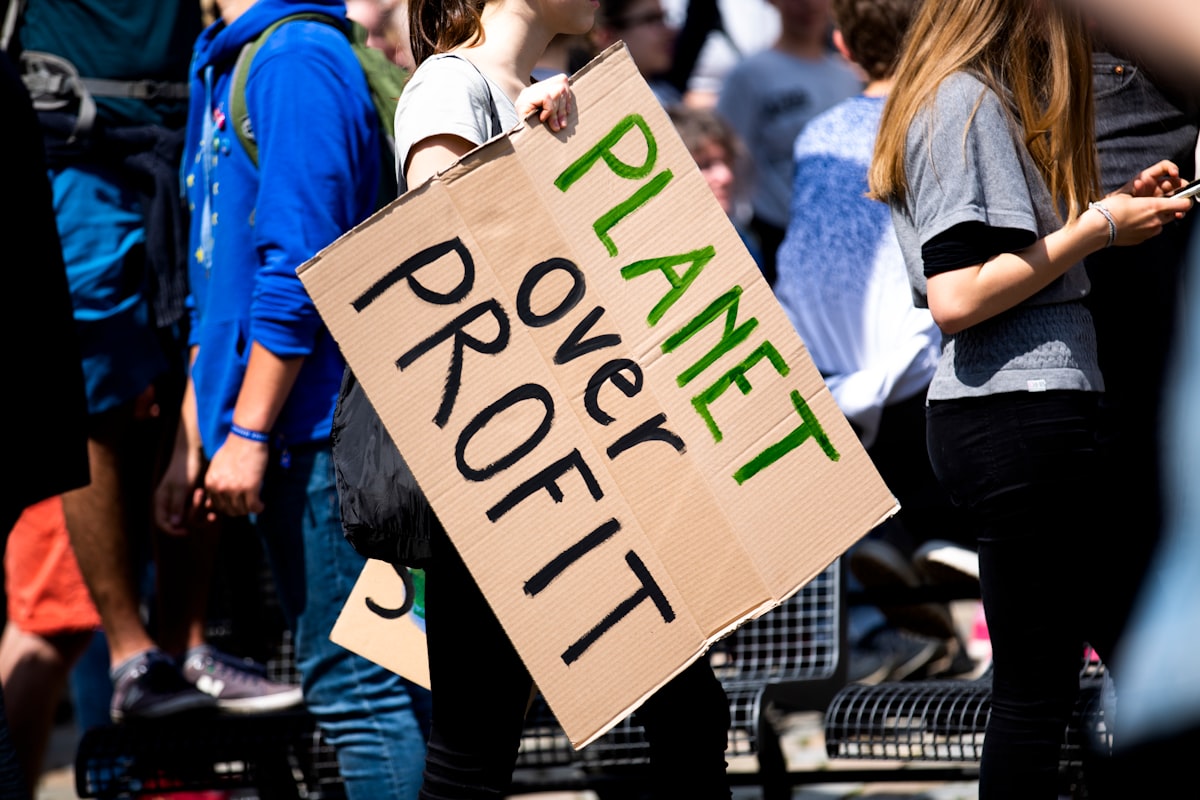Climate Collapse: Humanity Won't Act Until It's Too Late
Leaders hesitate to take significant action until the consequences become immediate and severe

Here's a little secret: Smoking kills.
"Well duh!" you say. That's not much of a secret. We've known for decades that smoking is linked to cardiovascular diseases and cancers.
So why does half the global population still smoke? And what does this have to do with the collapse of human civilization? Read on...

Why do people smoke even though they know it kills?
Part of it is comes down to societal norms and cultural influences. Millions of advertising dollars have been invested to create positive mental associations with smoking - masculinity, independence, vitality.
You'd think we would know better and see through the PR, but media is powerful. I've actually heard older women say that they find it unattractive if a man doesn't smoke. This might explain the smoking gender gap.
Despite any appeal, smoking has known risks. Even if it doesn't drag you to a horrific death, you're likely to suffer a multitude of debilitating health issues.
There's one simple trick to preventing all this: don't smoke!
Knowing the risks, why do people still smoke?
Because the risks take decades to materialize. Our lizard brains are fantastic at keeping us alive in the short term, but terrible at long-term planning. Our brains prioritize dopamine hits, quarterly earnings and immediate gratification.
Long-term potential risks always take a back seat to near-term priorities. This is why people don't save for a rainy day. This is why most companies ignore long term risks in favor of next quarter's earnings.
We saw exactly this during the 2008 Global Financial Crisis.
Parallels between Global Financial Crisis and Climate Collapse
In 2007, even as economic and business risks were known and building, former Citigroup chief executive Charles Prince infamously said the following:
“When the music stops, in terms of liquidity, things will be complicated. But as long as the music is playing, you've got to get up and dance. We’re still dancing.”
While this statement has haunted him ever since, it represents the sentiment of every executive in corporate America at the time.
Prince later explained his statement to the New York Times in a 2010 interview:
Mr. Prince said there was a great deal of competitive pressure to make these loans even though the private equity firms were “driving very hard bargains,” and had to make sure Citi had a piece of the action.
“My belief then and my belief now is that one firm in this business cannot unilaterally withdraw from the business and maintain its ability to conduct business in the future,” Mr. Prince said.
One of the consequences of not dancing, Mr. Prince said, was that Citi could lose the private equity firms as clients and lose bankers that have those relationships. He compared running a firm like Citi to managing a baseball team where none of the players have contracts.
“And if you are not engaged in business, people leave the institution, so it is impossible to say in my view to your bankers we are just not going to participate in the business in the next year or so until things become a little more rational,” he said. “You can’t do that and expect to have any people left to conduct business in the future.”
In other words, Prince knew the risks existed but had to prioritize the immediate needs of the business and its shareholders. If Citi chose to stop dancing, shareholders would have revolted and Prince would have been replaced with a CEO that would have danced.
This is the system we've built, and it's why climate-driven collapse will hit humanity like a ton of bricks. Corporations, governments and individuals are incentivized to prioritize short term gains over long term risks. Any business that "stops dancing" is penalized, as others step in to take their place (while also stealing their customers).
Government can create regulations to ensure all companies take necessary action without losing their domestic competitive position. However, while regulation can level the playing field across companies it cannot across nations. Regulatory costs imposed on US businesses to mitigate CO2 emissions provide a competitive advantage to companies in other countries with lax regulations. Moreover, it encourages US companies to move operations overseas away from regulatory oversight. Without globally unified cooperation, regulation can't fix this.
While humanity in general recognizes the risks presented by climate change, it is in our nature to keep dancing while the music plays.
Charles Prince and every other bank, investment bank and insurance company CEO eventually faced the fire in 2008 when the financial system imploded. The positions everyone knew were too risky morphed into an immediate acute crisis, bankrupting massive financial institutions overnight.
The future became the present - economic pain and fear was rampant. Everyone was repentant, and the heroes of the economic boom were villainized. Executives and politicians finally enacted reforms that would have prevented the crisis in the first place.
It's 2007 all over again. We know the rapidly deteriorating climate will someday shove a huge dose of reality down our throats. But today we dance.
Humanity's commitment to solving the climate crisis - reducing consumption, cutting fossil fuel use, de-industrializing - is tenuous at best, lip service at worst. Why? Because these are future risks. Someone else's problem.
Like the 2008 financial crisis, leaders won't take real action until they feel the heat. That's when they'll enact the changes we should have made 30 years ago.
Unfortunately, by then it will be too late.



